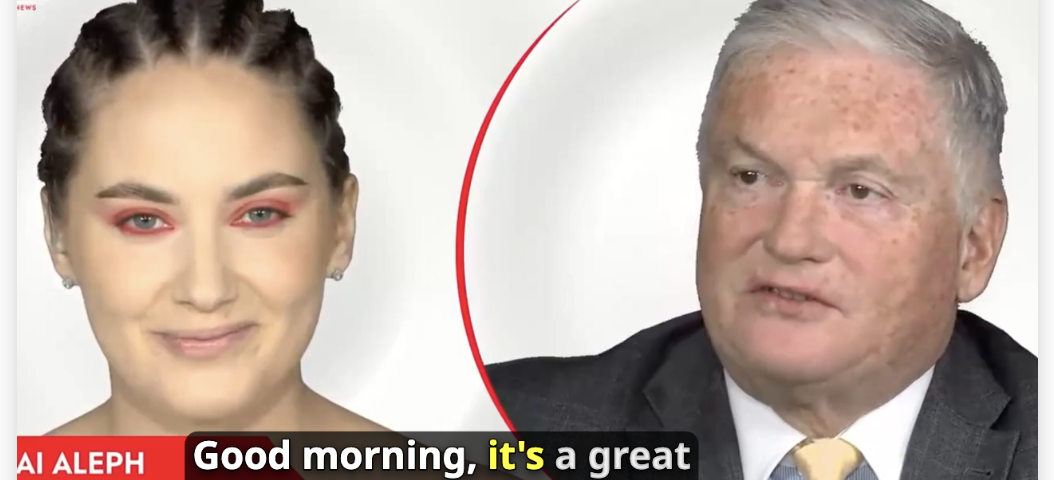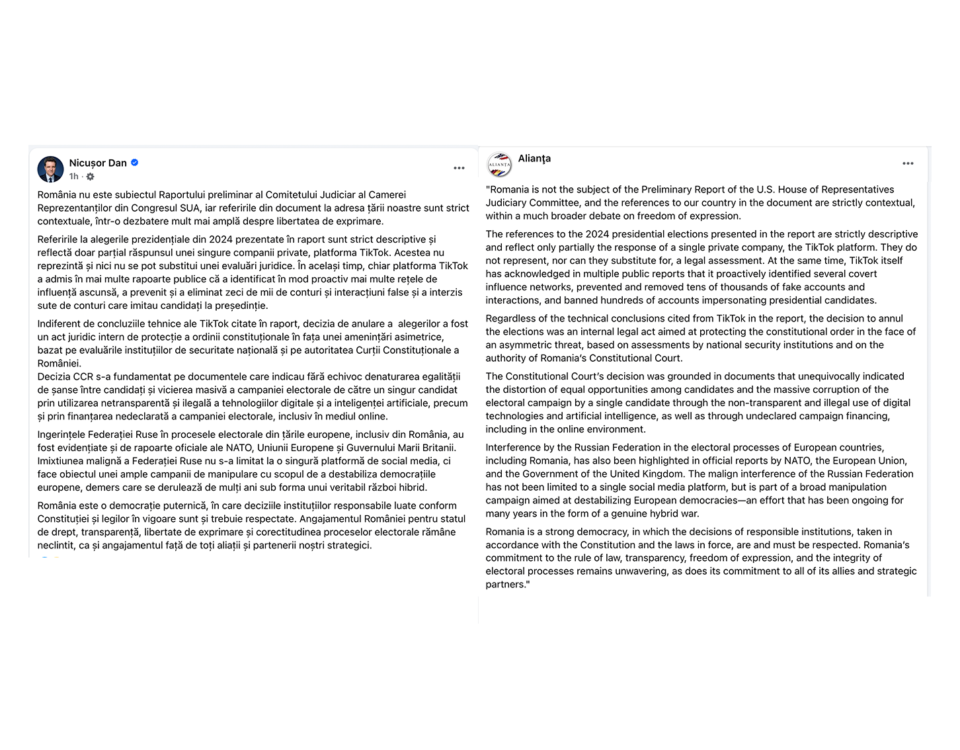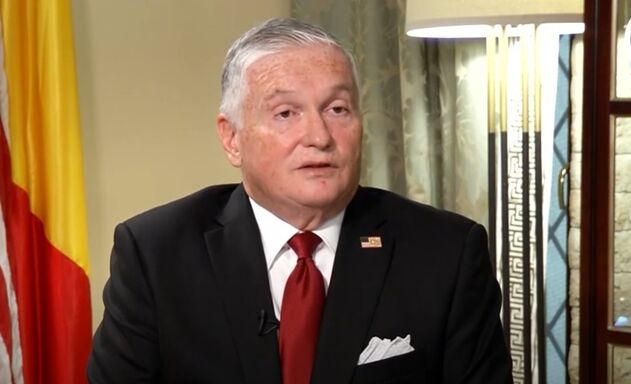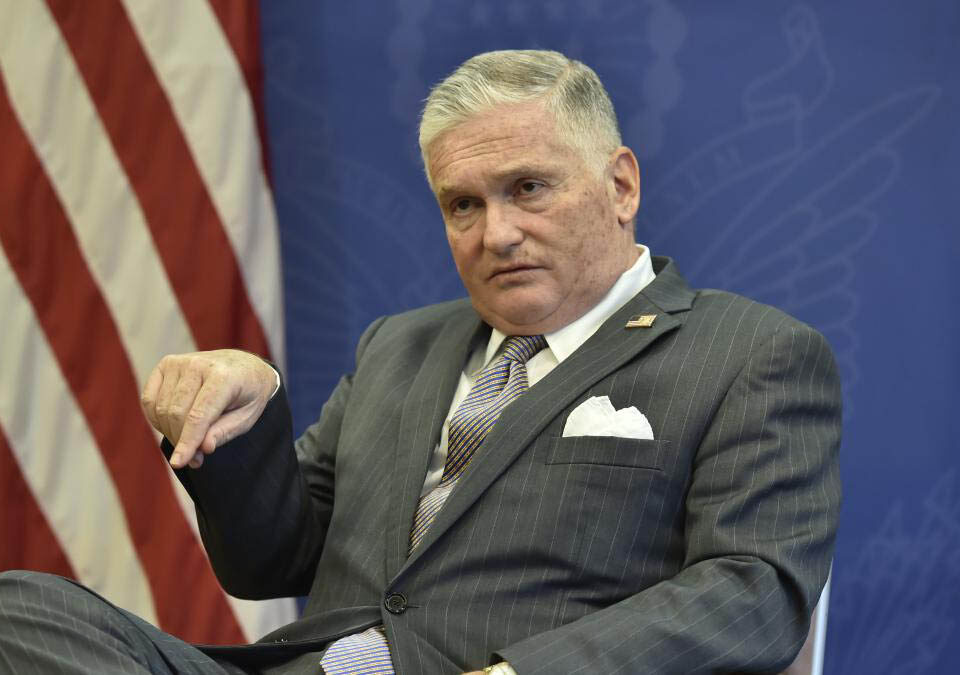Ambassador Adrian Zuckerman on U.S.-Romania Relations, Ukraine, and the Future of Europe
Interview with Aleph News, September 1, 2025
In an exclusive interview with Aleph News, former United States Ambassador to Romania, Adrian Zuckerman, offered insights into current global dynamics, the strategic U.S.-Romania partnership, and the state of affairs in Ukraine and Europe. The conversation took place on the five-year anniversary of a previous interview and comes at a pivotal moment as President Donald Trump prepares to mediate peace talks between Russia and Ukraine.
Reflections on Trump's Return
Ambassador Zuckerman began by highlighting the historical significance of President Trump’s re-election:
"It’s only the second or third time in U.S. history that a president has returned to office after a term out. Whether he truly lost in 2020 is still a topic of debate, but what’s clear is that the American economy is thriving again. Gasoline prices in the U.S. are now at a five-year low—about a quarter of what they are in Europe."
He contrasted these economic improvements with the challenges faced by European countries, including Romania, and emphasized the importance of learning from the American economic model.
Romania’s Revolution Must Be Completed
The Ambassador revisited a long-standing theme from his tenure: the need to complete Romania's post-communist transformation.
"I’ve said for years that the Revolution is not over. Now, with the leadership of President Nicușor Dan and Prime Minister Bolojan, we have the best chance to finish it—through privatization, economic reform, and eliminating inefficiencies in state-run enterprises."
He pointed to the example of Transelectrica, calling it "a national danger" due to outdated infrastructure and political mismanagement. Zuckerman called for audits, accountability, and structural reform to modernize Romania’s energy grid and improve national resilience.
Romania’s Path: Lessons from the U.S., but Independent Vision
When asked whether Romanian leaders should emulate President Trump’s approach, Zuckerman was measured:
"Romania’s leaders must do what’s best for Romania, just as the American government does what’s best for America. That said, strengthening ties with the U.S. and attracting investment are critical for Romania’s economic growth."
He stressed the importance of generating revenue by allowing the private sector to thrive, cutting unnecessary public spending, and eliminating unprofitable state-owned companies.
The Strategic Partnership with the United States
Ambassador Zuckerman expressed optimism about the U.S.-Romania strategic partnership, calling it “very strong.” Regarding the annulment of elections in Romania—mentioned in a recent U.S. State Department report—he noted:
"The Constitutional Court acted in defense of democracy. Certain political candidates have aligned themselves with Russia. Democracy must protect itself from such threats."
He condemned the rise of extremist parties and emphasized that there is no place in Romania for xenophobia, anti-Semitism, or foreign influence undermining democratic institutions.
Visa Waiver: Progress on the Horizon
On the long-awaited U.S. Visa Waiver program for Romania, Zuckerman expressed cautious optimism:
"From what I understand, all the technical details have been resolved. I expect a decision before the end of September."
He acknowledged the growing Romanian presence in the U.S., including entrepreneurs and professionals, and expressed hope for further integration and mobility.
Peace in Ukraine: The Role of American Leadership
On the topic of the war in Ukraine, Ambassador Zuckerman was unequivocal:
"Putin is a criminal. His actions are reminiscent of Hitler. He has launched aggressive campaigns not only in Ukraine, but also in Belarus, Georgia, Chechnya, Armenia, and across Africa and South America. This axis of evil, involving Russia, Iran, North Korea, and others, must be confronted decisively."
He criticized European nations for failing to meet NATO defense commitments and for not taking the threat seriously until recently.
"Until President Trump tells Putin that it’s over, the war will not end. We cannot allow nuclear blackmail. The only way to stop Putin is for the U.S. and Europe to speak with one voice."
He also called for a more serious, unified European leadership and criticized the appointment of NATO Secretary General Mark Rutte, citing the Netherlands’ past underinvestment in defense.
Looking Ahead
In closing, Ambassador Zuckerman emphasized that Ukraine must be defended because it represents democratic values in Europe.
"We cannot allow borders to be violated. We've seen this story before with Hitler and the Soviets. The only way Russia left Afghanistan was due to massive losses inflicted by American-backed forces. Strength is the only language Putin understands."
He concluded with hope for the future:
"I look forward to returning soon to talk about peace in Ukraine—or at the very least, to celebrate Romania’s inclusion in the Visa Waiver program."




